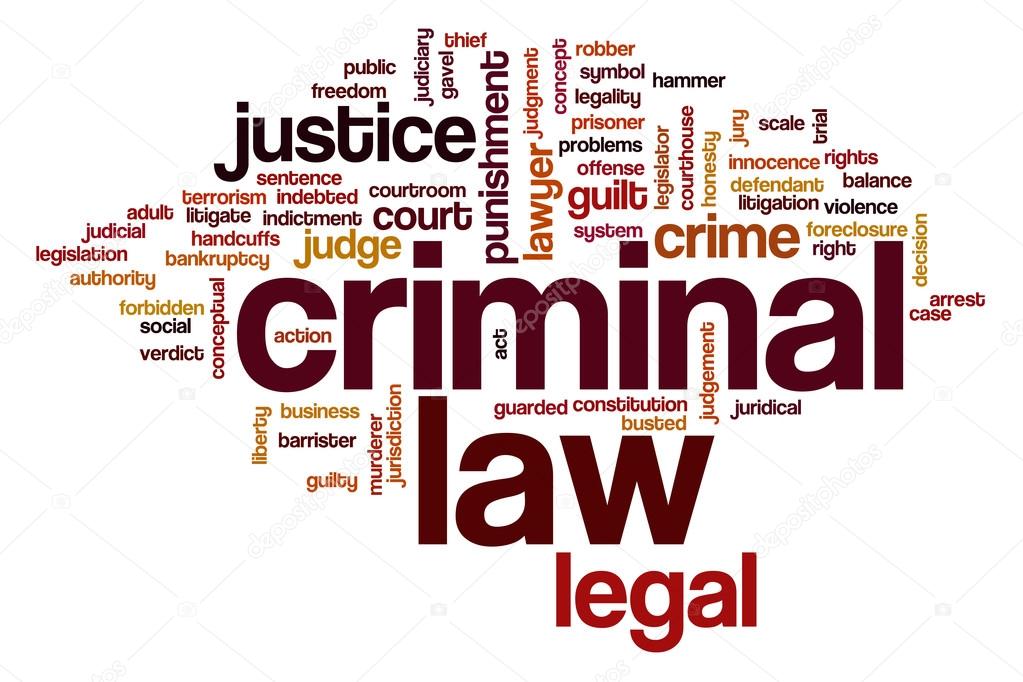Under Cameroon’s Criminal Law, The Death Penalty Is Suspended.

At the end of the trial, the offender may be sentenced to imprisonment or a fine. Fixed term imprisonment means loss of freedom, which is the latest model. The parties also have the right to apply for the suspension of the execution of the court order. The suspension of execution is a temporary suspension of the execution of a court judgment or other court orders by a court order. The term “execution” does not necessarily imply the death penalty. Although this is possible; it refers to the enforcement of all suspended judgments. This is similar to a ban. If a party to a civil or criminal case agrees not to execute the death penalty within a certain period of time, it may be automatically permitted to suspend the execution in accordance with law or practice. If one party appeals against the decision, any judgment made by the original court may be suspended until the appeal is resolved.
Reasons for stopping operation
The main role of the court is to promote justice for the parties to the dispute and the whole society. After collecting all the evidence and solving the problem, the judgment should arouse social trust. The best test for this is that litigants and ordinary bystanders will feel that justice has been upheld, not different. Of course, the quality of judgment is the only basis to determine whether the parties in a particular case have access to justice. In this case, the trial judge and the appeal judge must be careful to avoid anything when writing the judgment. According to article 37(2) of the 1996 Constitution, a judge can only guide his conscience when deciding the matters before him. In some cases, the judge may need to suspend the execution of the sentence. This may be the result of some considerations or reasons. The following are the reasons for stopping the study.
The false identity of criminals
If the person convicted is not the wrong person or the person who actually committed the crime, the court may suspend the execution. According to Article 10 of Cameroon’s Criminal Procedure Law, if it is determined during the investigation or trial that someone is guilty of seizing a stain or being found guilty in a false identity, the proceedings shall be stopped according to the requirements of the Ministry of Law until such identity is corrected. To this end, the Legal Department shall make a decision according to the situation. Preside over the judicial identity service department or submit the issue to the court, and the judgment includes the criminal’s identity error. In the Cameroon national lawsuit of Lorence Acha Mbah and Oben Luis Oben, the court held that the Ministry of Justice could not refuse to execute the court order simply because it was dissatisfied with the court order, so it could stop executing the order only if it had a false identity.
In case of fine
In the people’s lawsuit of Nuh John and Mudang Johnson, the court held that there were two remedies for criminals who had issued a prison order. First, he can pay a fine to prevent or stop the execution of the arrest warrant. Second, after the execution of the arrest warrant, if he is imprisoned, he can provide the guarantor within two months after the guarantor signs the letter of guarantee to guarantee the payment of a fine, thus stopping the execution of the arrest warrant. Article 561 of the Criminal Procedure Law means that the president of the court of first instance in the place where the arrest order is executed shall make a final judgment on the application after hearing the statement of the offender and the proposed guarantor. Such decisions cannot be appealed. After the application is approved, the President shall require the guarantor to explain the result of the guarantee and sign the document promising to pay the debts to the guarantor. Otherwise, when the period specified in section 560 of the same code expires, it will replace the imprisonment of the offender. After the guarantor reads and signs the bond, the President shall release the debtor immediately. The notice of judgment shall be immediately sent to the prison director, and each copy shall be forwarded to the president of the court issuing the prison injunction and the Legal Department.
Criminal proceedings with civil proceedings
According to article 59(1) of Cameroon’s Code of Criminal Procedure, all criminal acts can lead to criminal proceedings or civil proceedings. The purpose of criminal proceedings is to judge criminals or take preventive measures according to the provisions of the law, while the purpose of civil proceedings is to provide compensation for the damage caused by crimes. In Cameroon, criminal proceedings should be initiated and prosecuted by the Ministry of Law. According to the conditions stipulated by law, any government department or injured person can bring a lawsuit. Therefore, according to Article 61 of the Criminal Procedure Law, if the civil proceedings are caused by the same crime, they can be filed together with the criminal proceedings in the same court. It can also be filed separately from criminal proceedings. Nkweta Paul& in, 2 Ors VS. The People and/or the court held that if the civil action is caused by the same crime, the criminal action can be initiated at the same time as the civil action in the same court. Any person who claims to be a victim of a crime may apply for damages orally or in writing in court. The civil party’s application for damages shall be filed before the end of the lawsuit, otherwise it will not be accepted.
In this case, the court dealing with civil cases should suspend proceedings until a final decision on criminal proceedings is made. If the civil compensation claim is withdrawn, the situation is different. Except as otherwise provided by law, withdrawal of civil proceedings shall not suspend criminal proceedings.
If you apply for setting aside the judgment
Once the court makes a decision, it can be cancelled. Article 427 of the Code of Criminal Procedure goes to the effect that any party to the case, except the Ministry of Law, may apply for cancellation of the default judgment. However, if the civil party received formal service but did not attend, did not submit sufficient reasons for attendance or absence of representatives, it should be considered as giving up the civil action. Under such circumstances, he cannot be allowed to apply for revocation of the judgment already made. If it is filed by the civil party who violates the lawsuit, the court shall limit it to criminal proceedings after the opinion of the Legal Department.
Those who apply for cancellation of the default judgment shall suspend execution. However, a writ issued by the court or a judgment conferred under article 392 shall remain enforceable. The application for cancellation of a default judgment may be limited to the criminal or civil aspects of the judgment.
(2) The court that applied for setting aside the default judgment and made the judgment has the right to try the case again. The matter shall be listed at the next hearing or within 7 days(seven days) after the application for setting aside the judgment at the latest, otherwise, if one of the conditions specified in section 246(g) is met, he will be released on bail.
The application time for the revocation of the sentence is 10 days(10 days) from the day after the sentence is served directly on the criminals living in Cameroon. This is 3(3) months from the date the sentence is communicated directly to the criminal residing in a foreign country. According to the judgment served in Article 57, the application period is 10 days(10 days) from the date of service. If an application for cancellation of the default judgment is filed within the specified time limit and an appeal is filed against the same judgment, the application for cancellation of the judgment shall be handled before the matter is submitted to the Court of Appeal.(b) Before the appeal court makes a judgment on the application for setting aside the judgment, it has begun to hear the appeal, and any interested party can be informed of the existence of the application by the court. In this case, the court shall suspend the appeal until the application is processed.
If, if
There is no special provision in the law. According to Article 439 of the Criminal Procedure Law, every sentence, including the sentence made by the military court, can be appealed. The persons who have the right to appeal in the case include(1) criminals. b)(a) the person responsible for it; c)(a) the insurer(for example, he is a party to the proceedings); d) Civil parties; e) National legal adviser; f) Attorney General of the Court of Appeal; g) A government department that brings an action under Article 60 of this Code.
Article 453 of the Code of Criminal Procedure stipulates that the execution of the sentence shall be suspended on all appeals. However, all subsequent orders shall remain in force, and the final judgment made against a civil party shall be paid to him under section 392(1).
There is one exception in the case of appeals. In other words, if an appeal is made, the execution of the judgment will not be suspended. Article 503(1) of the Criminal Procedure Law stipulates: “An appeal to the Grand Court shall not impede the execution of the judgment. In particular(a) any arrest warrant issued or maintained by the Court of Appeal shall remain in force.(b) The judicial supervision measures ordered or confirmed by the Court of Appeal shall continue to have an effect.(c)(b) Where the Court of Appeal acquits, suspends execution or imposes a fine and the time of imprisonment is less than or equal to the time of detention, the appellant detained subject to section 393 shall be released immediately. The defendant may suspend the judicial supervision measures or cancel the arrest warrant to the Grand Court.
Article 505(1) of the Criminal Procedure Law goes along the following lines, and further stipulates that the current law on the suspension of civil trials shall apply to the Supreme Court. He added: “The President of the Supreme Court or the sub presidents authorized for the purpose of the Supreme Court shall, after receiving the opinion of the Attorney General, decide separately on the application for suspension of the execution of the civil judgment mentioned in paragraph(1).”
Application for case review
According to Article 535(1) of the Criminal Procedure Law, in the following cases, a retrial of the criminal proceedings may be applied for in favor of any person convicted of a serious or minor crime.







